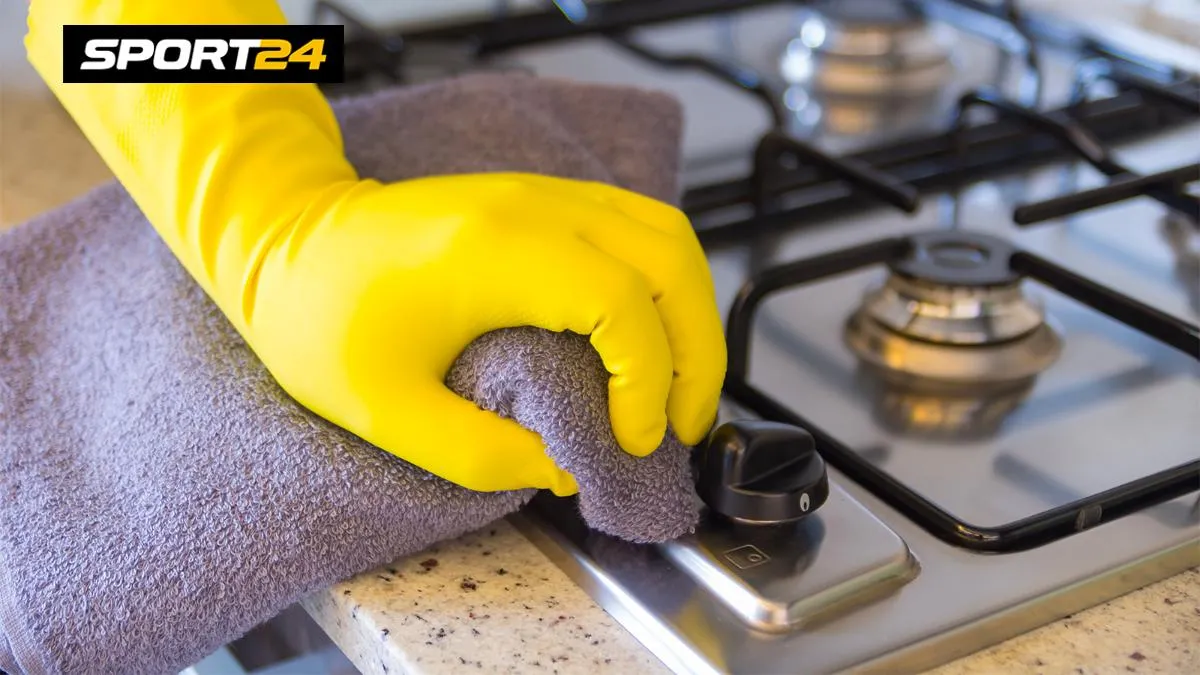
I use this trick – and the stove does not get dirty while cooking: our mothers and grandmothers knew the secret
It really works. The name is Oksana Laryushkina, I am the editor of the Life Life Suborders on Sport24. In the Lifehaki section, we share trusted tips that simplify household tasks and save time. The train is one of the most “vulnerable” zones in the kitchen. Even if you are neat, drops of oil, spray sauce and water from the pan quickly make it dirty. Cleaning after cooking is not the most pleasant stage, especially when the spots have already been drunk. But there are proven ways to prepare so as not to spend strength on taping.
How to protect a slab from dirt
Use food soda
One of the working methods is to use soda as an absorbent. Before cooking, sprinkle the hob, especially the space between the burners, a thin layer of baking soda. During cooking, it absorbs fat drops and food remnants. After – gently collect the powder along with the pollution with a damp cloth or brush.shutterstock.com
Use covers and protective nets
It sounds obvious, but in practice many ignore this advice. Close pans and pans with lids, especially if you cook soup or fry something with butter.
For pans are suitable for special Anti -fat nets – They pass steam, but delay spray.Fact: Fat with frying can fly in a radius of up to 60 cm – this is confirmed by studies of hygieneists (for example, the data of the University of Arkansas).
Follow the fire level
The higher the temperature, the more active the liquid boils and splashes. Reduce fire after boiling and do not overheat the pans with oil. Also, do not fill the dishes to the edges. When a pan or pan is filled to the end, any activity – mixing, boiling, surge – leads to overflow. Leave at least 2-3 cm to the edge. shutterstock.com
shutterstock.com
Wipe the dishes in front of the topics, as it puts on the stove
The wet or fat bottom of the pan leaves a ring or spots, especially on glass ceramics. Wipe the bottom dry – a simple action significantly reduces pollution.
Put foil or reusable rugs
For gas stoves are suitable Heat -resistant protective padswho are easily removed and wash. You can put on glass ceramics heatproof perforated foil Around the burners. They do not prevent spray, but facilitate cleaning – it is enough to remove and rinse. shutterstock.com
shutterstock.com
Process the plate with vaseline
One of the tips popular on the Internet is to apply a thin layer of petroleum jelly to the surface of the stove. It creates a protective film to which fat and pollution stick worse.
After cooking, it is enough to wipe the plate with a dry or damp cloth – the fat goes easier. Vaselin is thermo -resistant (up to 60–70 ° C) and is safe for glass ceramic and enamel if you do not apply it to a hot surface and not leave next to open fire.Important: Do not use this method on gas stoves next to the burners – this is dangerous.
How to wash a stove from fat
If the spots have already appeared, it is important to prevent them from burning them – especially on glass ceramics, where any fled is noticeable.Which helps:A warm solution of soda and vinegar. Mix soda and a little water to the state of gruel, apply to pollution, sprinkle with vinegar, leave for 10-15 minutes, then gently wipe the sponge.A product for ovens. It breaks down fat even on old spots. Apply strictly according to the instructions and gloves. Important: Ventify the room if the product contains an alkali.Paste made of citric acid and water. Soft alternative to chemistry, especially for induction plates. Rub, leave for 15 minutes, rinse. Do not use abrasive sponges on glass ceramics – they scratch the surface. For gas slabs – use hard sponges, but not metal brushes. shutterstock.com
shutterstock.com
What should not be done
Do not close the gas stove completely foil – It violates ventilation and is dangerous.Do not put a wet pan on an induction stove – Drops can get inside the case and cause malfunctions.Do not use aggressive cleaning products on a hot surface – Evasions can be toxic.

